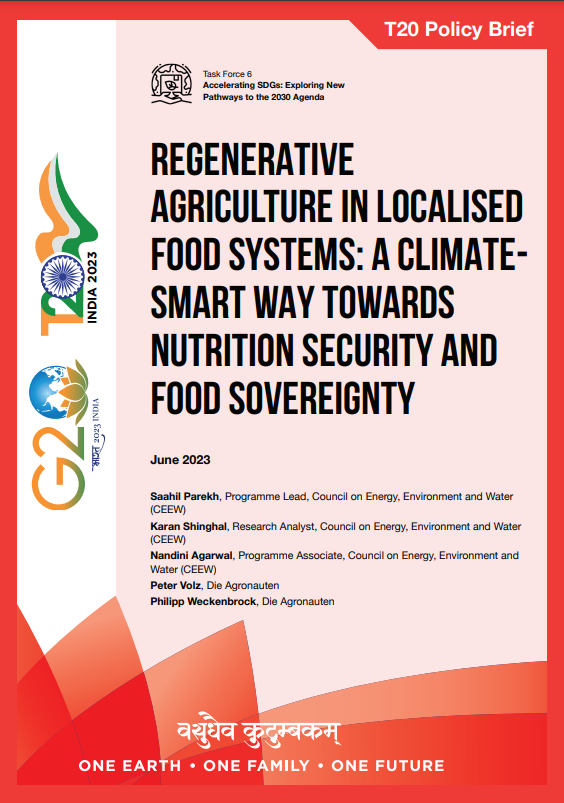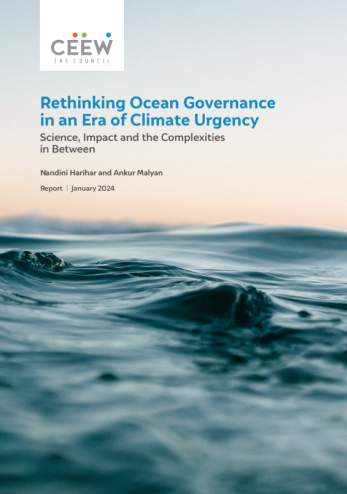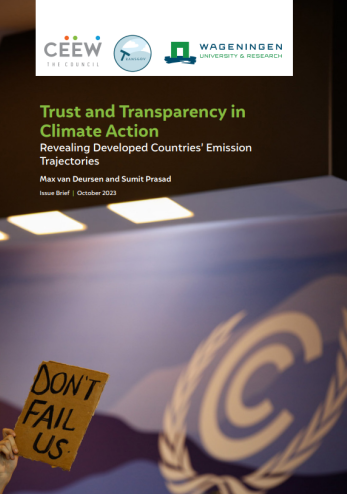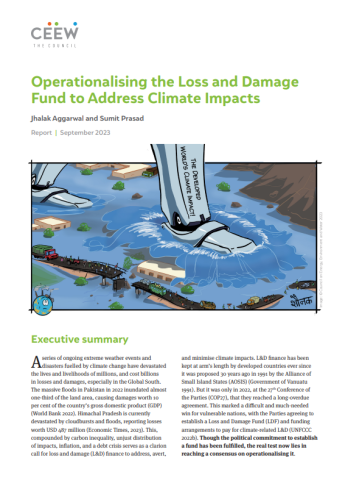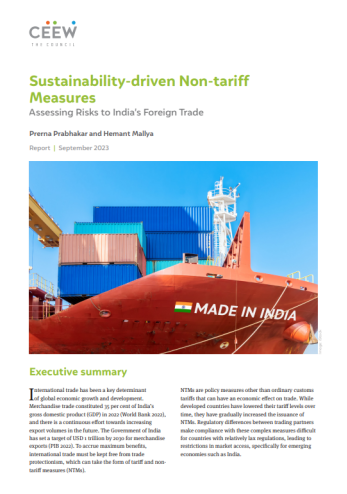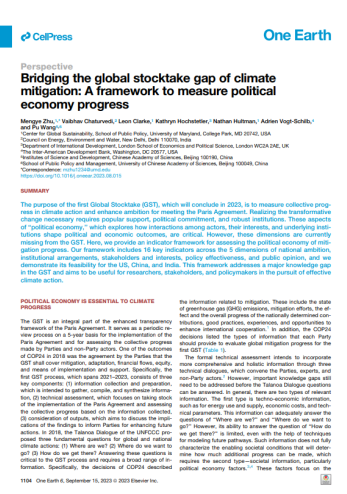Policy Brief
Regenerative Agriculture in Localised Food Systems
A Climate-Smart Way Towards Nutrition Security and Food Sovereignty
Saahil Parekh, Karan Shinghal, Nandini Agarwal, Peter Volz, Philipp Weckenbrock
June 2023 | International Cooperation, Sustainable Food Systems
Suggested citation: Parekh, Saahil, Karan Shinghal, Nandini Agarwal, Peter Volz, Philipp Weckenbrock. 2023. Regenerative Agriculture in Localised Food Systems: A Climate-Smart Way Towards Nutrition Security and Food Sovereignty. T20 Policy Brief.
Overview
This paper, published by the T20 India Task Force, discusses the potential of regenerative agriculture in the context of local food systems and why it can be a potential solution to fulfil nutrition security and food sovereignty. Food security has been at the centre of global agriculture cooperation, but achieving it has resulted in a dichotomy where consumers are exposed to global foods, but the traditional diversity of crops on the farm has dwindled, and local communities' food sovereignty has eroded. The problem is that food security and sovereignty are pitched against each other. This policy brief highlights how local food systems with regenerative farming practices can offer scalable alternatives to this deadlock and what the G20 can do to enable this.
Key Highlights
- The global food system produces approximately 500 more kilocalories of food per person per day than recommended in the EAT’s Planetary Health Diet. However, an estimated 768 million people worldwide do not have enough food to meet their daily energy needs, while an estimated 2.3 billion people are overweight or obese. Reducing this inequity in access to healthy, nutritious food remains a pertinent challenge for the global food system.
- The Green Revolution created economies of scale that promoted mono-cropping practices, sustained by increasing chemical inputs. This was further entrenched by an agricultural support system that subsidised their use. Mono-cropping agricultural systems negatively impact land use, land cover, and freshwater sources and degrade biodiversity, soil health, and water quality and are responsible for 21–37 per cent of total agriculture emissions globally.
- While the industrialised food production system has increased the availability of processed food globally, it has curtailed the food sovereignty of local communities as they succumb to existing market structures. This affects both their production and consumption choices.
- The G20 countries contain most of the world’s agricultural land and most food-related trade, making them crucial stakeholders in advancing solutions for sustainable food systems. Despite the G20’s considerable focus on food security and combating the threat posed to agriculture by climate change, the pandemic and the Ukraine war brought a wave of malnutrition, a consequence of broken global food supply chains. The G20 responded with the Matera declaration and emphasised the importance of food systems that can generate nature-positive outcomes, halt and reverse biodiversity loss, and adopt measures that strengthen local and indigenous food systems and supply chains.
Recommendations
- Repurpose existing agricultural support systems and parameters of accounting. To mainstream local food systems and regenerative agricultural practices, policymakers need to re-evaluate how the effectiveness, productivity and output of food systems are measured. We recommend employing the True Value Accounting (TVA) method that considers all externalities and resources that a food system affects and uses respectively.
- Promote sustainable food choices: To encourage sustainable food choices, the G20 should catalyse investments that: (i) are geared towards awareness creation, (ii) repurpose the support towards the procurement and provision of food in public institutions to include locally sourced, regeneratively grown produce, and (iii) facilitate platforms that can amplify success stories and best practices.
- Create enablers that facilitate localised, sustainable, and small-scale farming-friendly food system transformations: The G20 can enable such a transformation by leading the facilitation of an effective mechanism and catalysing the finance through the following steps: (i) establish a task force to develop strategies for transformation, (ii) create mechanisms for improving research, innovation, and knowledge dissemination systems under the leadership of the Meeting of Agricultural Scientists (MACS), (iii) facilitate convergence on these actions with other global forums such as COPs and the UN Food Systems Summit.
"Several G20 presidencies have alluded to the need for nature-positive, context-specific, and small-scale friendly solutions, all of which are characteristics of local food systems, but the action remains limited. The Indian G20 presidency should strive to present a roadmap to mainstream them through repurposing existing agricultural support, catalysing sustainable food consumption choices, and facilitating this transformation through enablers."




